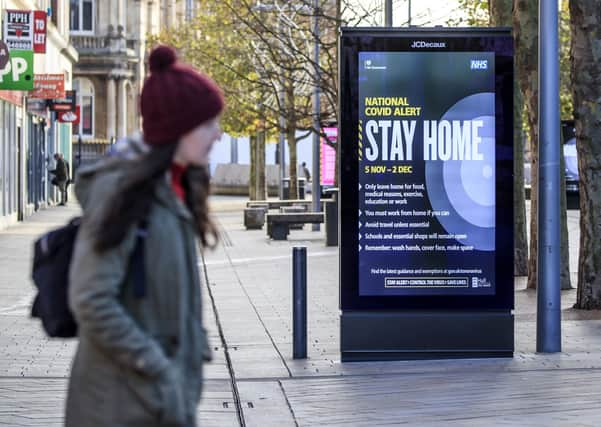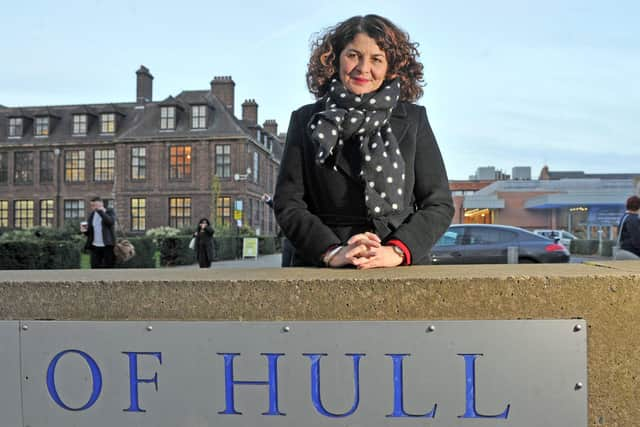How Hull is being shortchanged by Government – Diana Johnson


In my view, local government must also be central to any serious plan from the Government for ‘levelling up’.
Sadly, in Hull over the past decade it has felt more like levelling down – and so it continues in the latest local government financial settlement announced by the Government.
Advertisement
Hide AdAdvertisement
Hide AdThe Chancellor, previously so adept at locating the forest of magic money trees, has made the deliberate and calculated political decision to underfund local government by around £2bn and then invite local councillors to make up that funding shortfall by levying a large council tax increase of up to five per cent.


That would be around four per cent above the current rate of inflation – even before the fire and police precepts were added.
I find it woeful that the Chancellor is playing political games at a time of a national public health and economic crisis – devolving blame rather than power and, yet again, providing only a sticking plaster solution to the issue of social care.
This is despite the Prime Minister’s previous promises to get this sorted.
Advertisement
Hide AdAdvertisement
Hide AdThe problem confronting us now is not just the fact that local authorities in the most deprived areas have had the deepest funding cuts since 2010.


The key point is that the communities represented by these local councils have within them the poorest families who have been hardest hit by the decade of austerity and then by the Covid crisis over the past year.
Unemployment, always higher in these areas, has risen sharply recently.
Many of these families are currently having to choose between heating and eating. They simply cannot afford a large increase in council tax – made in Downing Street.
Advertisement
Hide AdAdvertisement
Hide AdA wealth of research has shown that the council tax is a regressive tax that hits hardest low-income working families who are just outside the scope of benefits entitlement.
A five per cent council tax hike would be a major act of austerity targeted at these families at the worst of times.
In Hull, a five per cent-plus council tax increase would raise little for local services, such as adult social care and children’s services that are currently under huge pressure – but it would cause disproportionate misery for families who simply cannot afford any extra tax burden at this time.
Council tax increases also raise less revenue for services in deprived areas than is the case in wealthier areas. A one per cent council tax hike in Hull would bring in around £883,000.
Advertisement
Hide AdAdvertisement
Hide AdMeanwhile, in the East Riding of Yorkshire, our wealthier neighbour, that same one per cent would bring in £1.7m.
A five per cent council tax increase in Hull would generate £4.4m. This would not close the budget gap of £13m that Hull City Council looks like facing in 2022-23 and, in my view, is not the solution to it.
Given the 80-seat Tory majority in the Commons, the Chancellor’s council tax bombshell was forced through the House.
It now falls to local councillors to make the unenviable choice of whether to pass on this austerity measure to low income working families, partially ameliorating the funding shortfall, or to reject this deliberate austerity and face further cuts to local services.
This puts councils between a rock and a hard place.
Advertisement
Hide AdAdvertisement
Hide AdI believe that the past is for learning from – not living in.
However, it is worth reflecting that 2021 is the centenary year of highly relevant events in Poplar in 1921 when Labour borough councillors rejected the idea that the poor should keep the poor, as is currently being demanded by the current Government a century later, and refused to impose austerity on their poorest families.
The Poplar councillors went to prison for their brave stance – but they won. Their victory secured equalisation of the rates between richer and poorer areas – a fairer system of local government finance that lasted decades, with a few aberrations such as the poll tax, until the Tories and Lib Dems in the 2010 coalition Government started year-by-year to dismantle the idea of fair funding for poorer areas.
We now face the renewed need to battle for a fairer funding deal for areas such as Hull and other disadvantaged areas in our country, and for a local taxation system that works for lower paid working families in those communities.
Dame Diana Johnson is the Labour MP for Hull North.
Advertisement
Hide AdAdvertisement
Hide AdSupport The Yorkshire Post and become a subscriber today. Your subscription will help us to continue to bring quality news to the people of Yorkshire. In return, you’ll see fewer ads on site, get free access to our app and receive exclusive members-only offers. Click here to subscribe.
Comment Guidelines
National World encourages reader discussion on our stories. User feedback, insights and back-and-forth exchanges add a rich layer of context to reporting. Please review our Community Guidelines before commenting.